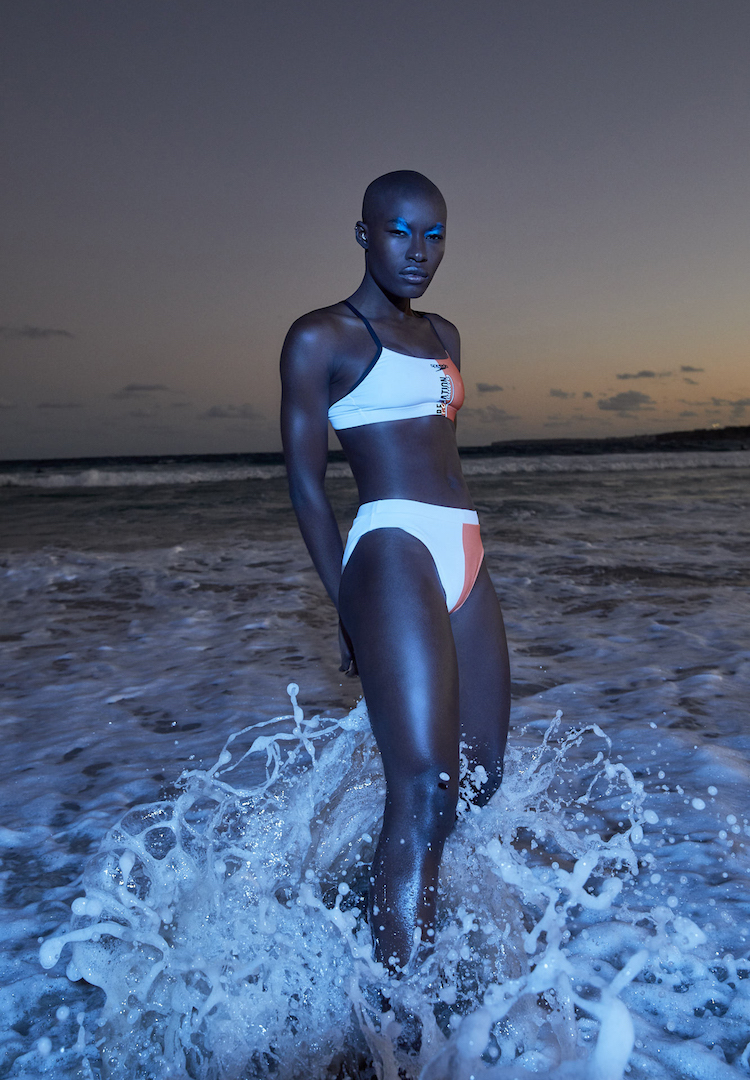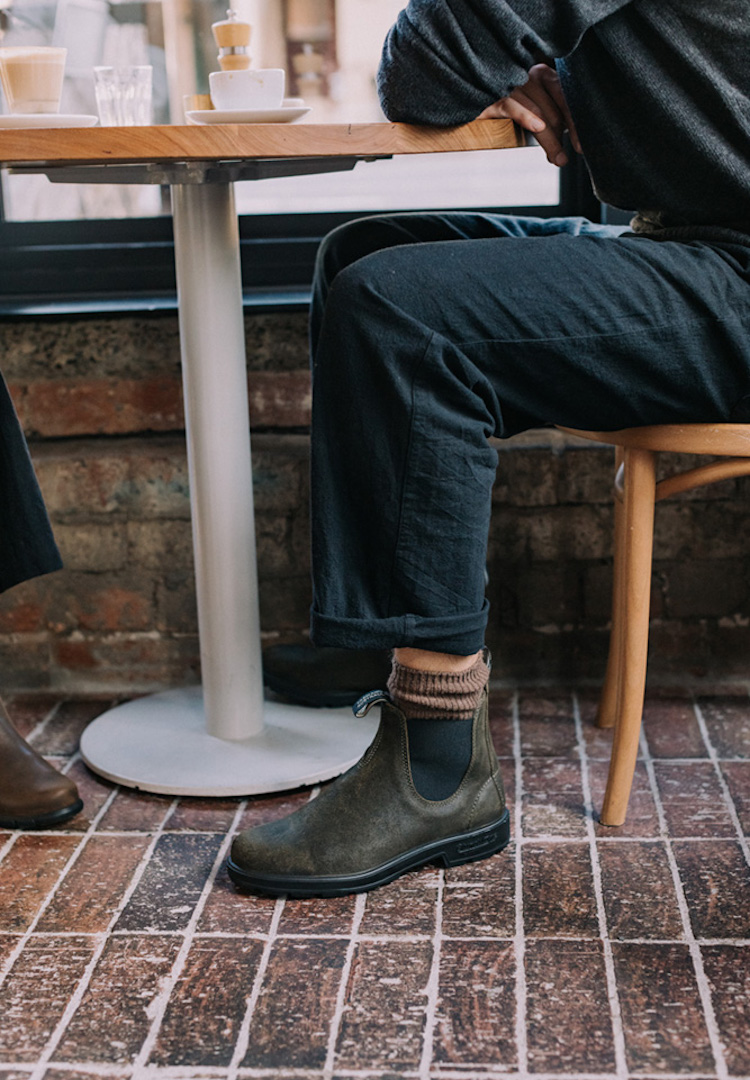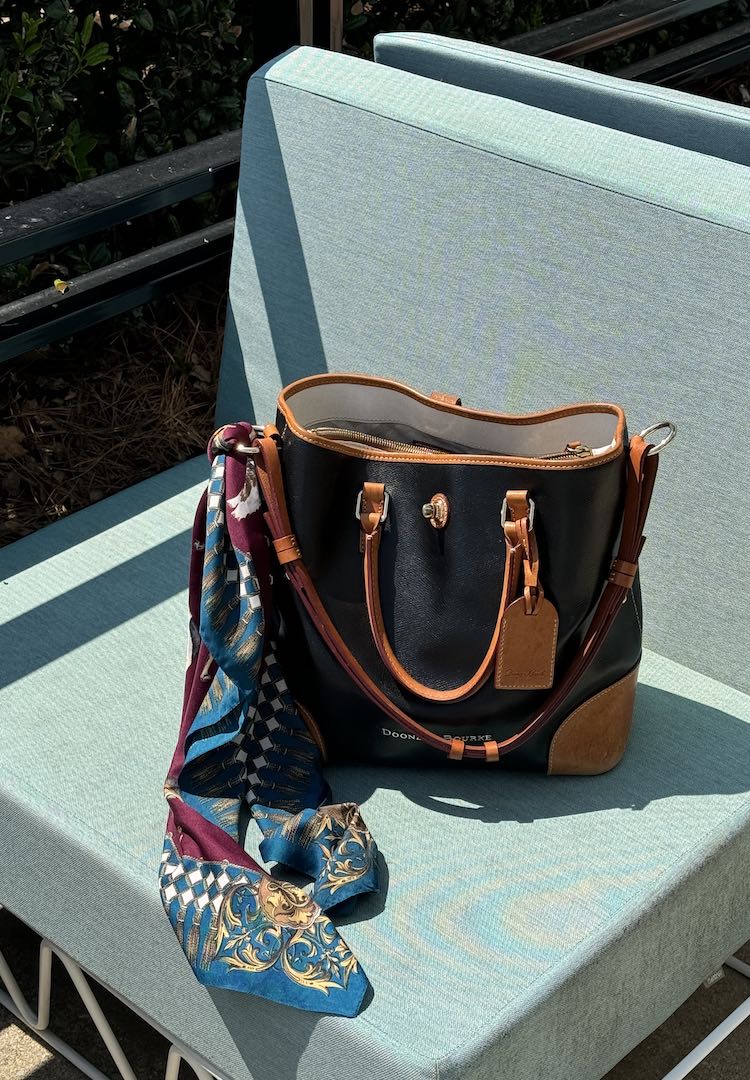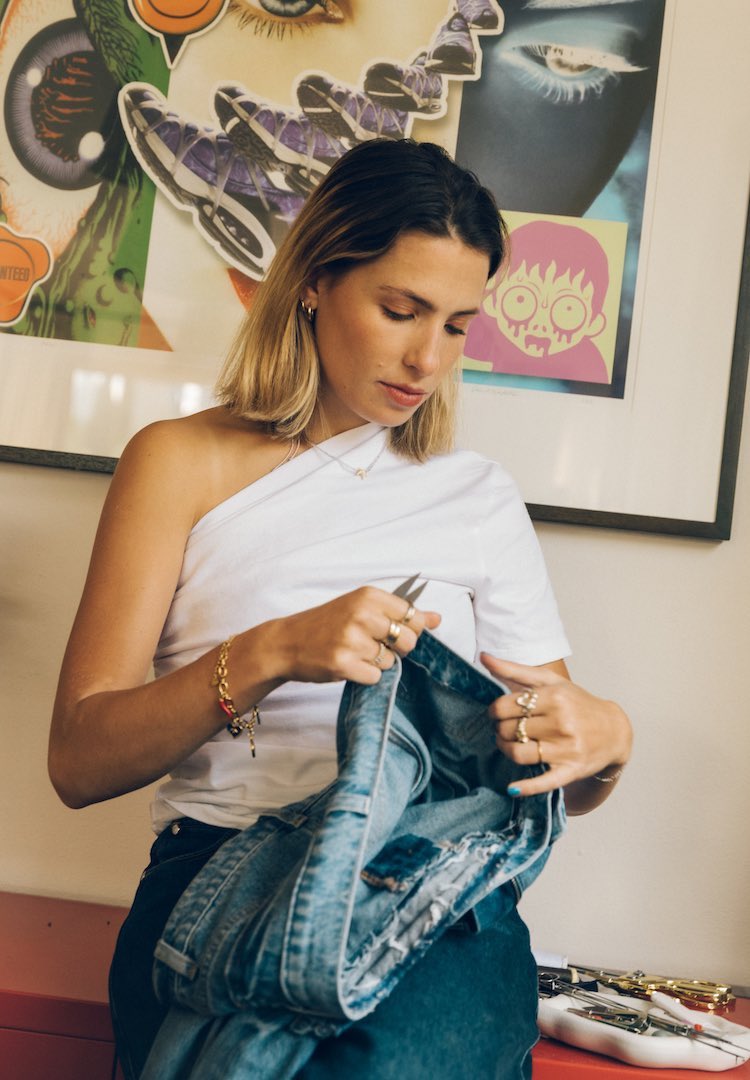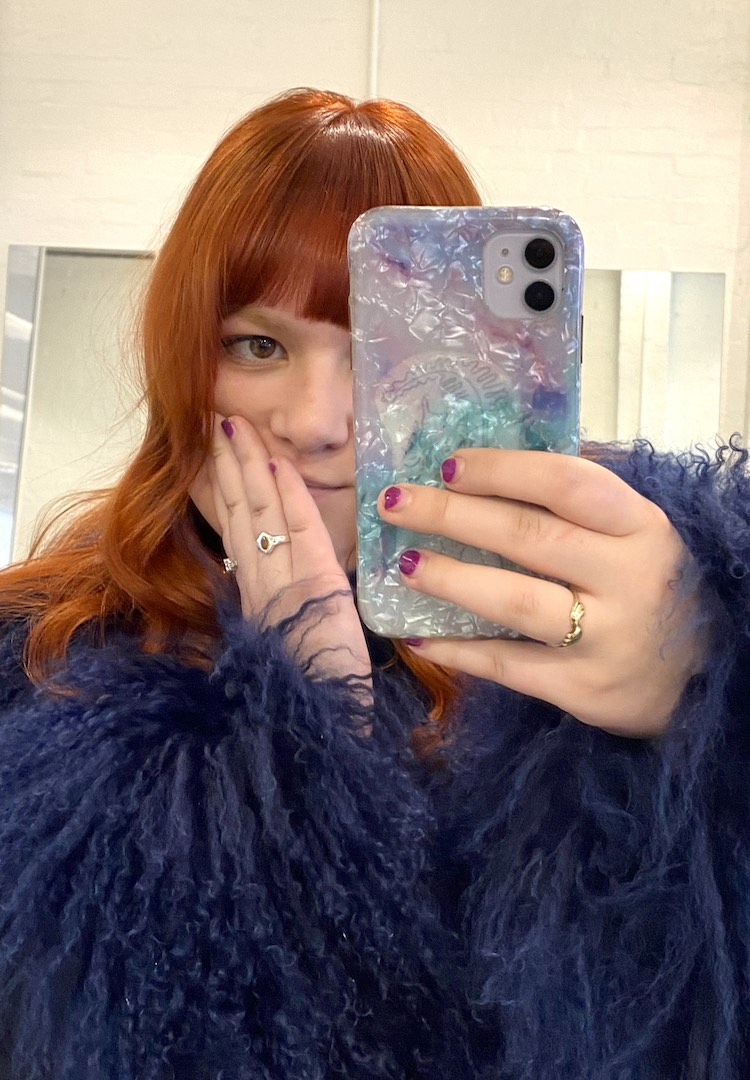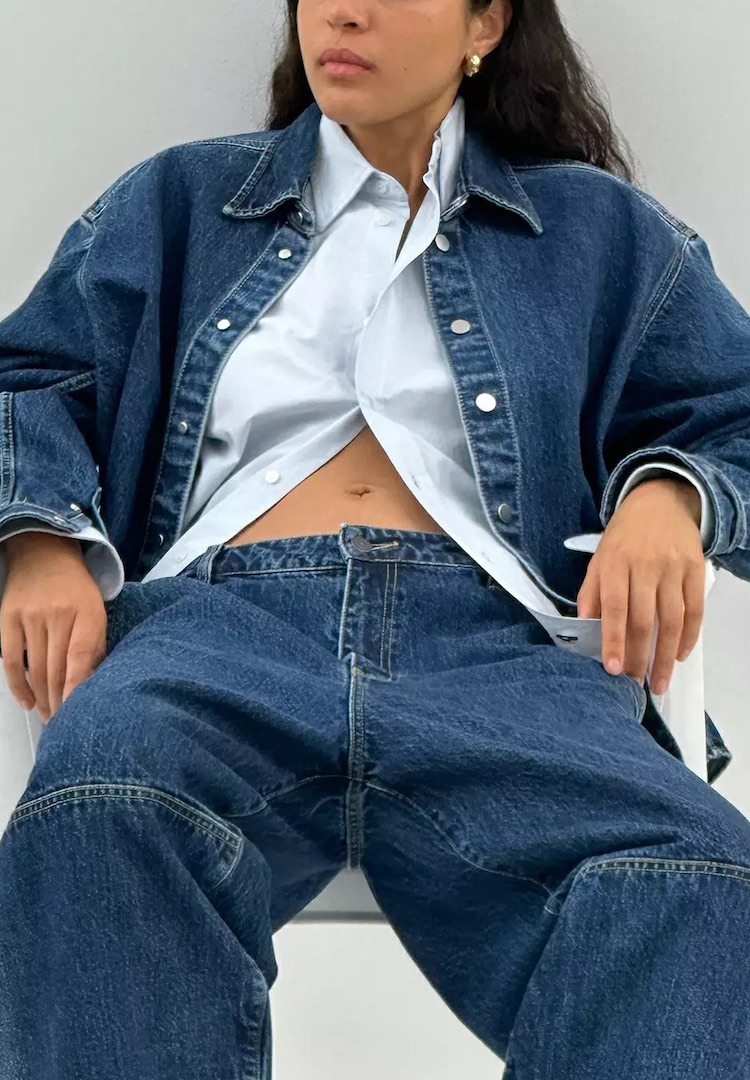Wrangler’s Indigood initiative involves a new, sustainable way to dye denim
Words by Maeve Kerr-Crowley
Blue never felt so green.
Denim is one of the world’s favourite textiles. But it can also be one of the most environmentally harmful.
Fortunately, a number of labels have made it their mission to make denim production a much greener process. Wrangler is among them with the introduction of Indigood, an initiative to find new, more sustainable means of making and using denim.
Ethics are a continuing concern for the brand, leading to past decisions such as a partnership with the sustainability-focused Better Cotton Initiative, reusing fibres from discarded T-shirts, and a circular system designed to reduce water waste.
The iconic leather butt patch found on the label’s jeans has also been replaced across a majority of women’s (and some men’s) styles with an alternative, recycled paper version. And underscoring all these initiatives are timeless construction techniques that ensure every denim garment will last a really, really long time – keeping your jeans out of landfill.
But one area the label is particularly looking to improve through the Indigood program is dyeing, as traditional denim dyeing can have pretty nasty effects, including the production of tainted blue wastewater. (More on that here.)
In response, Wrangler has introduced an all-new dyeing method to its denim production, which involves applying dyes using foam, rather than large water or chemical vats. The result is that no water is used in the dyeing process, which in turn heavily reduces waste.
The innovation was developed by Texas Tech University, using funding and tech advice provided by Wrangler.
Wrangler’s first batch of denim dyed using foam technology will drop online this month, as part of the brand’s ICONS F/W ’19 collection.

